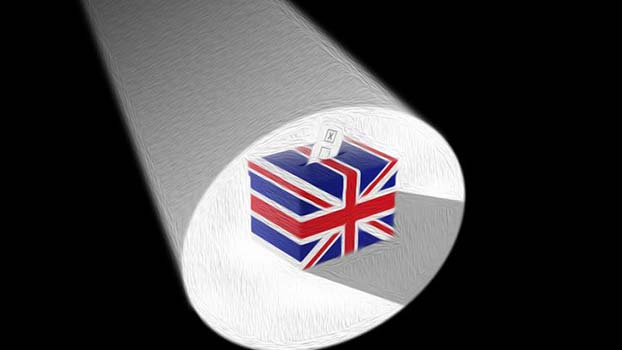UK’s decisive moment has finally arrived
Polls may bring some semblance of normality after prolonged political paralysis


Thank goodness that’s over, surely the most dispiriting election campaign of recent times. It has made the debacle of 2017 feel almost uplifting by comparison.
Prime Minister Boris Johnson didn’t want an election and would rather have had his European Union (EU) withdrawal deal agreed by members of parliament than go to the country so early in his premiership.
Yet, he had little choice once it looked as if he would be trapped in Downing Street for the winter, unable to “Get Brexit Done”, or do anything else for that matter.
Labour party leader Jeremy Corbyn didn’t want an election either. He refused to vote for it. Labour’s hand was eventually forced by the Scottish Nationalist Party (SNP) and the Lib Dems, who detected an opportunity for advancement, but might get stuffed as a result.
Above all, Britain didn’t want it, and certainly not at this time of the year. For the first time since 1923, voters have been asked to elect a new parliament with the Christmas lights twinkling in shop windows and carols in the air.
National mood
The weather on December 6, 1923, in the South at least, was fine and cold with some morning mist. On December 12, 2019, as if to reflect the national mood, it will be foul, with heavy rain, high winds and snow in some areas.
In 1997, just 2 per cent of the total electorate used a postal ballot. By 2010 that had risen to 15 per cent, then to 16 per cent in 2015. In 2017, postal votes made up 22 per cent of all votes included at the count and in some constituencies in the North East almost half the votes were cast by post. It will be even higher this year, not least because of Christmas.
Big final push
So all those last-minute policy blitzes, cross-country dashes and phoney National Health Service (NHS) stories will have had no impact on about a quarter of all voters. The parties always make a big final push in election week, but if so many have already voted you wonder why they bother.
On the other hand, postal voters have, by definition, made up their minds. It is the waverers the party tacticians are after, those undecideds still agonising, even with pencil in hand, over whether to vote tactically in the hope of bringing about a particular outcome or to support the party they actually want to win.
The real fight is for not many more than 20,000 votes in around 80 marginals, which are being bombarded with election literature and subjected to a stream of political heavyweights beating a path to their doors.
This is why it is so hard to predict the result. The internal Conservative memo leaked is right to say Corbyn is closer to No 10 than many people realise because he does not need to win outright to become prime minister.
This prospect rests “on as little as a one to two per cent movement in current vote in a handful of seats”, the memo stated. The Tories need to emphasise the Corbyn threat in order to dissuade wavering Remainers from voting tactically to stop Brexit.
Apart from Brexit, the election campaign ducked
most of the big issues facing us, such as social care,
population pressures, the NHS (other than to argue
over funds and waiting lists), defence of the realm,
robotics and the advance of AI or the future
of the Union in any meaningful sense
Equally, Labour candidates know that fear of Corbyn is holding the party back; so the leaking of Jon Ashworth’s remarks stating that the Labour leader cannot possibly win and will be gone soon anyway is designed to counter that narrative. Call me an old cynic, but I find it pretty hard to believe they were not intended for public consumption.
Partisan and mendacious
In one journalistic guise or another I have covered every general election since 1983 and cannot recall anything quite so enervating, one-dimensional, dismally partisan and mendacious as this one.
Apart from Brexit, it has ducked most of the big issues facing us, such as social care, population pressures, the NHS (other than to argue over funds and waiting lists), defence of the realm, robotics and the advance of AI or the future of the Union in any meaningful sense.
But please let this be decisive, with some semblance of normality after three-and-a-half years of political paralysis.
Philip Johnston is a noted British columnist and journalist. Source: The Telegraph Group Limited, London, 2019//Gulf News

